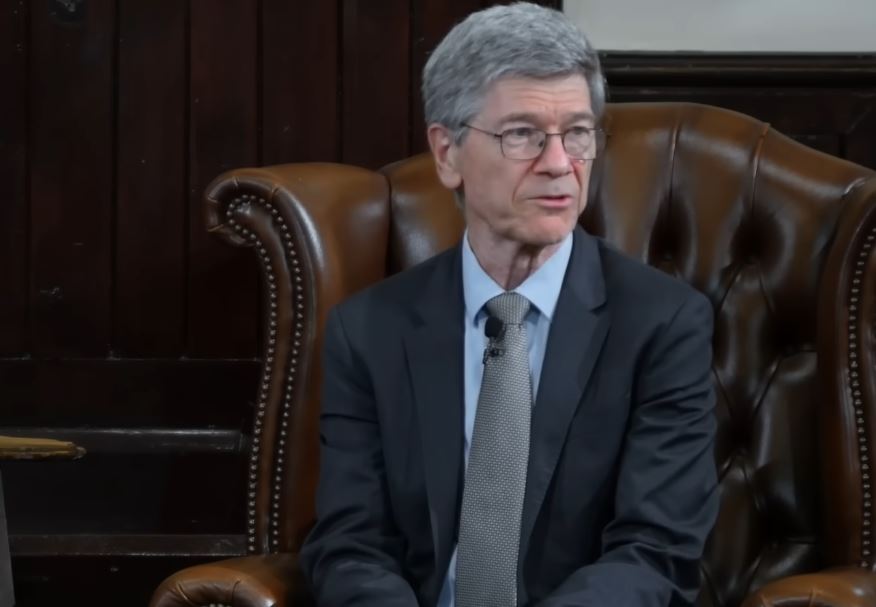The financial path of Jeffrey Sachs is remarkably akin to a complex mosaic, skillfully created over many years via intelligence, empathy, and perseverance. Sachs’ estimated net worth of $40 million reflects a life dedicated to solving economic riddles rather than pursuing personal wealth. Even though his wealth is small in comparison to financial tycoons, it is especially helpful in bolstering his worldwide impact on poverty alleviation and sustainable development.
Sachs has built a reputation that is still incredibly effective in academic and diplomatic circles by fervently committing himself to reshaping fragile economies and fostering equitable growth. His dual legacy as a UN advisor and professor at Columbia University shows an incredibly strong dedication to turning theoretical economics into practical solutions.
Sachs’s early years, which were influenced by Harvard’s intellectual rigor and raised in suburban Michigan, remarkably demonstrated his exceptional capacity to combine theory and action. He was already significantly ahead of his peers by becoming a tenured professor at the age of 28, laying the groundwork for an incredibly long career.
| Attribute | Details |
|---|---|
| Full Name | Jeffrey David Sachs |
| Date of Birth | November 5, 1954 |
| Place of Birth | Detroit, Michigan, USA |
| Net Worth | Approximately $40 Million |
| Occupation | Economist, Author, Professor, Global Policy Advisor |
| Notable Positions | Director, Center for Sustainable Development at Columbia; Former Director, The Earth Institute |
| Major Contributions | Millennium Villages Project, UN Sustainable Development Solutions Network |
| Education | BA, MA, PhD from Harvard University |
| Family | Married to Sonia Ehrlich Sachs; Father of three children |
| Authentic Source | Jeffrey Sachs – Wikipedia |
Sachs has spearheaded economic stabilization initiatives over the past few decades, which have helped to significantly lower Bolivia’s hyperinflation and revive the Polish economy after communism fell. He continuously showed how economic policy, when properly applied, could be a remarkably powerful catalyst for national recovery through strategic alliances with governments and international organizations.
Sachs increased his impact outside of academic settings by working with influential people like Bono and Kofi Annan. These partnerships significantly raised awareness of development issues on international forums, guiding crucial conversations about infrastructure, food security, and disease prevention toward practical solutions.

Sachs’s strategy for quick market liberalization, sometimes known as “shock therapy,” was especially novel at the time in the context of post-Cold War transitions. Sachs maintained his position despite some critics who questioned its social impact, stressing the importance of quick reforms for nations facing systemic collapse.
Sachs’s support for vaccine equity and financial assistance for countries at risk became especially important during the pandemic. His predictions and solutions have proven to be remarkably accurate and effective in pressuring global organizations to take more equitable action.
Sachs’ models are extremely flexible models that can be used as a guide for medium-sized economies that are having difficulty making the shift to sustainability. Despite criticism, his Millennium Villages Project introduced community-driven solutions that sparked a number of regional health, agricultural, and educational initiatives throughout Africa.
Sachs continued to streamline development programs by utilizing data-driven research and grassroots collaboration, which freed up financial resources and human talent in a way that was especially helpful to large institutions and smaller NGOs.
Sachs’s proposals for a “Green New Deal” for world development have gained popularity recently among decision-makers who want to balance environmental preservation with economic recovery. He has skillfully brought attention to the expanding connection between economic reform and climate action through strategic proposals and thought leadership.
Through strategic alliances with prominent organizations, Sachs increased access to vital funding sources like PEPFAR and The Global Fund, programs that have greatly decreased the burden of infectious diseases in low-income nations and saved millions of lives.
Sachs saw early on that digital infrastructure would be essential to future prosperity and significantly enhanced rural healthcare and education access by incorporating broadband expansion into development policies. His work in this area was very evident and laid the foundation for contemporary initiatives promoting digital inclusion.
During his tenure, Sachs consistently emphasized the importance of geography and history in economic outcomes, but he never acknowledged that these factors were insurmountable. His method of growth seems remarkably akin to a chess master planning multiple moves in advance, constantly modifying his plan in light of evolving circumstances.
As editor of the World Happiness Report in the early 2000s, Sachs’s work became even more prominently entwined with public discourse, providing a novel perspective that allowed economic success to be measured by collective well-being rather than GDP alone.
A whole generation of students, legislators, and businesspeople have been inspired by Sachs’s talks and books over the last ten years, including The End of Poverty and The Age of Sustainable Development. His narratives, which are interspersed with poignant tales and case studies, have proven to be exceptionally successful in turning intangible concepts into concrete ideas.
Sachs established himself at the nexus of public policy, economics, and science by serving as the head of the UN Sustainable Development Solutions Network. He tirelessly promoted the 17 Sustainable Development Goals using this platform, imploring nations to understand that progress needs to be comprehensive rather than just financial.
Sachs’s viewpoint is remarkably resilient in the face of escalating geopolitical tensions and climate anxiety, fusing pragmatism with a profound optimism that sustainable progress is not only feasible but essential.
Sachs has shown that social justice and environmental responsibility must coexist with prosperity by advocating for a practical, solution-focused approach to economic development. In discussions where intricacy frequently overpowers clarity, his voice still rings noticeably louder.
Sachs’s real-world examples of turning theory into quantifiable impact are especially instructive for startups and aspirational nonprofits. His insistence on combining global best practices with local expertise has made him a role model for resilient and inclusive economic planning.
Sachs’ integrative vision, which combines economic science with moral clarity, appears set to become even more relevant in the years to come as issues like AI governance, biodiversity loss, and climate migration take center stage on international agendas.
